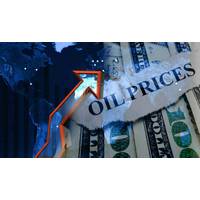Talks between Russian and Ukrainian energy ministers and the European Commission to take place on Friday are a preliminary step towards a deal by around June on ensuring future gas supplies, EU officials said.
Last year the Commission, the EU executive, brokered a series of three-way talks that led to an accord in October to keep gas flowing over the peak demand winter months despite acute tension between Kiev, Moscow and Brussels over Russia's annexation of Crimea.
The "winter package" expires on March 31, after which Ukraine is set to lose the discount negotiated last year unless a new deal is reached.
Commission officials said Ukraine had the option of buying cheaper gas through reverse flows from the European Union, but that would not be enough.
"Friday's meeting is a kick-off meeting that's designed to set the agenda," a Commission official said, speaking on condition of anonymity. "We do not have all the time in the world. We should try to reach agreement no later than June."
Apart from ensuring supplies for Ukraine, the Commission's interest is to prevent any knock-on disruptions to the European Union, which relies on Russia for about a third of its gas, roughly 40 percent of which is shipped via Ukraine.
Friday's talks in Brussels will bring together Russian Energy Minister Alexander Novak, Ukrainian Energy Minister Yuri Prodan and Commission Vice President Maros Sefcovic.
The European Commission said it also expected Naftogaz Chief Executive Andriy Kobolev to take part, but it was unclear whether Gazprom's boss Alexei Miller would attend. Gazprom declined to comment.
One of the aims of Friday's trilateral talks, which begin around 3 p.m. (1400 GMT), will be to agree on figures, including on the volumes of gas Ukraine might need as it seeks to fill storage over the lower-demand summer months.
The Commission calculates that Ukraine needs to boost its reserves to 19 billion to 20 billion cubic metres (bcm) by around October compared with 7.3 to 7.4 bcm now.
It can be helped by reverse flow from the European Union, notably from Slovakia, but that is unlikely to be enough.
The Commission estimates Ukraine will need 4 to 6 bcm directly from Russia.
Another issue is the duration of any deal, with the Commission keen that it should cover the gap until international arbitrators in Stockholm rule on the dispute between Kiev and Moscow on the size of Ukraine's gas debt. A court decision was not expected until late 2016, the Commission said.
(By Barbara Lewis; Additional reporting by Denis Pinchuk in Moscow and Pavel Polityuk in Kiev; Editing by Ruth Pitchford)




